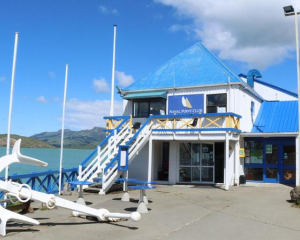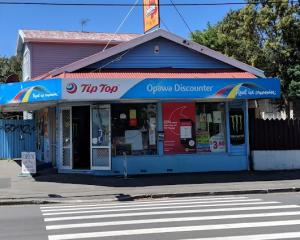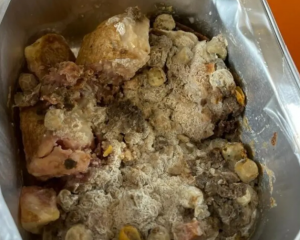Captain Robert Falcon Scott’s Discovery Hut has opened its doors to the UK public, thanks to Kiwi-made technology.
The New Zealand Antarctic Heritage Trust in collaboration the UK Antarctic Heritage Trust (UKAHT) are touring England and Scotland for the first time with two immersive virtual reality experiences.
The virtual reality tour will visit schools, museums and Antarctic organisations where the British public can don the VR headset, hold the controllers and come face to face with penguins, feed huskies, and meet heroic-era explorers.
Among those seeing first-hand how VR is transforming Antarctic education was UKAHT patron, the Princess Royal Anne, at a special event at Gilbert White’s House and Gardens in Hampshire.
Princess Anne officially launched NZAHT’s Ross Sea Heritage Restoration Project at Scott’s Discovery hut in 2002.

“We're excited to bring Scott’s expedition base to people virtually, making it accessible to those who may not have the opportunity to visit these historic sites in person.
“It gives great insight into the everyday items the explorers had with them and how they used the hut to support the important science and exploration they undertook.”
NZAHT launched its new VR experience of Scott’s Discovery Hut with Auckland-based virtual reality tech company StaplesVR in August last year.
The VR experience uses a combination of LiDar and photogrammetry data to give the public access to the first expedition base on Antarctica’s Ross Island built in 1902 - making it over 122-years-old.
Said StaplesVR Technical Manager Krystal Paraone: "To create something as realistic and true to real world form as Scott’s Discovery Hut VR, the team at StaplesVR spent over 1000 hours modelling each artefact and piece of timber to be painstakingly accurate.
"It was incredibly important to ensure we accurately captured the heritage and significance of the building along with the items inside."
Christchurch man Clarence Hare was on the 1901-1904 expedition with Captain Robert Falcon Scott’s.
Some of his descendants living in the UK will be taking the opportunity to virtually visit a place that is important to their family history.
A significant amount of the funds for the initial conservation of Scott’s explorer bases was raised in the UK.

Said Eathorne: "The conservation work our teams undertake is world-leading and sharing it through VR helps us to educate people around the importance of saving this cultural heritage for future generations."
There will be two virtual reality experiences on offer during the tour.
The UK Antarctic Heritage Trust’s A Frozen Night is a 30-minute-long VR experience which transports participants to a fully immersive reconstruction of a historic scientific base where they will step into the shoes of over-wintering Antarctic scientists.
UKAHT chief executive Camilla Nichol said those taking part will be among the first in the UK to engage with Antarctic heritage sites in this new and unique way.
"A Frozen Night is UKAHT’s first virtual reality experience based on a true story from the archives and narrated by those who lived and worked in our southernmost base, Stonington Island. One of the earliest British sites, established in 1948 and a key dog sledging base, Stonington Island enabled teams to travel far inland into the Antarctic Peninsula," Nichol said.
"Now, for the first time, A Frozen Night allows people to virtually travel into Stonington’s past to experience the wonders and risks of Antarctic field work."













